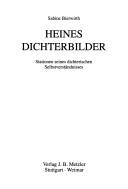| Listing 1 - 10 of 13907 | << page >> |
Sort by
|
Book
ISBN: 1526131404 9781526131409 9781526131416 1526131412 1526131382 Year: 2018 Publisher: Manchester, UK : Manchester University Press,
Abstract | Keywords | Export | Availability | Bookmark
 Loading...
Loading...Choose an application
- Reference Manager
- EndNote
- RefWorks (Direct export to RefWorks)
This book produces a major rethinking of the history of development after 1940 through an exploration of Britain’s ambitions for industrialisation in its Caribbean colonies. Industrial development is a neglected topic in histories of the British Colonial Empire, and we know very little of plans for Britain’s Caribbean colonies in general in the late colonial period, despite the role played by riots in the region in prompting an increase in development spending. This account shows the importance of knowledge and expertise in the promotion of a model of Caribbean development that is best described as liberal rather than state-centred and authoritarian. It explores how the post-war period saw an attempt by the Colonial Office to revive Caribbean economies by transforming cane sugar from a low-value foodstuff into a lucrative starting compound for making fuels, plastics and medical products. In addition, it shows that as Caribbean territories moved towards independence and America sought to shape the future of the region, scientific and economic advice became a key strategy for the maintenance of British control of the West Indian colonies. Britain needed to counter attempts by American-backed experts to promote a very different approach to industrial development after 1945 informed by the priorities of US foreign policy.
Technological innovations --- Breakthroughs, Technological --- Innovations, Industrial --- Innovations, Technological --- Technical innovations --- Technological breakthroughs --- Technological change --- Creative ability in technology --- Inventions --- Domestication of technology --- Innovation relay centers --- Research, Industrial --- Technology transfer --- History --- Great Britain --- Colonies --- Economic policy. --- science --- experts --- development --- empire --- Caribbean --- late colonial --- sugar --- industrialisation --- British West Indies --- Trinidad --- United Kingdom of Great Britain and Ireland --- Humanities. --- History. --- History: specific events and topics. --- Colonialism and imperialism. --- HISTORY / Europe / Great Britain / 20th Century.
Book
Year: 2014 Publisher: Amsterdam : Editions Rodopi,
Abstract | Keywords | Export | Availability | Bookmark
 Loading...
Loading...Choose an application
- Reference Manager
- EndNote
- RefWorks (Direct export to RefWorks)
A libretto is an indispensable part of an opera as a musical genre: with few exceptions, operas have been the subject of musicological studies, and instrumental versions of sung or unsung opera numbers may be heard, but we never listen to libretto texts being performed without the music. Thus as a literary form the libretto is a highly specific genre with its own particular attributes. This volume offers an approach to the libretto through the discussion of these attributes in many different examples. It explores what may be expected of a librettist in response to the demands of the genre's
Music industry. --- Opera -- History. --- Opera.
Book
Abstract | Keywords | Export | Availability | Bookmark
 Loading...
Loading...Choose an application
- Reference Manager
- EndNote
- RefWorks (Direct export to RefWorks)
Book
ISBN: 3847401173 3847403826 Year: 2013 Publisher: Leverkusen Verlag Barbara Budrich
Abstract | Keywords | Export | Availability | Bookmark
 Loading...
Loading...Choose an application
- Reference Manager
- EndNote
- RefWorks (Direct export to RefWorks)
Book
ISBN: 3873203553 9783873203556 Year: 1975 Volume: 355 Publisher: Baden-Baden: Koerner,
Abstract | Keywords | Export | Availability | Bookmark
 Loading...
Loading...Choose an application
- Reference Manager
- EndNote
- RefWorks (Direct export to RefWorks)
Burnacini, Lodovico Ottavio --- Burnacini, Ludovico --- Burnacini, Ludovico, --- Burnacini, Ludovico Ottaviano,

ISBN: 3860572032 Year: 1996 Publisher: Tübingen Stauffenburg
Abstract | Keywords | Export | Availability | Bookmark
 Loading...
Loading...Choose an application
- Reference Manager
- EndNote
- RefWorks (Direct export to RefWorks)
German literature --- anno 1900-1999 --- Women and literature --- Feminism and literature --- History and criticism. --- Women authors --- History
Book
ISBN: 9028925872 9039107742 9789039107744 9789028925878 Year: 1998 Volume: *21 Publisher: Kapellen: Pelckmans,
Abstract | Keywords | Export | Availability | Bookmark
 Loading...
Loading...Choose an application
- Reference Manager
- EndNote
- RefWorks (Direct export to RefWorks)
anno 1800-1899 --- Geschiedenis van de nieuwste tijden --- Histoire contemporaine --- 19e eeuw --- Civilization, Modern --- 930.86.03 --- -#gsdb8 --- 940.2 --- Modern civilization --- Modernity --- Civilization --- Renaissance --- Mentaliteitsgeschiedenis:--Nieuwste Tijd --- History --- 930.86.03 Mentaliteitsgeschiedenis:--Nieuwste Tijd --- #gsdb8 --- Nineteenth century --- Civilization [Modern ] --- 19th century --- Civilization, Modern - 19th century --- 19e eeuw.

ISBN: 3476013219 Year: 1995 Publisher: Stuttgart Metzler
Abstract | Keywords | Export | Availability | Bookmark
 Loading...
Loading...Choose an application
- Reference Manager
- EndNote
- RefWorks (Direct export to RefWorks)
Book
ISBN: 3826711556 Year: 1999 Publisher: Egelsbach : Hänsel-Hohenhausen,
Abstract | Keywords | Export | Availability | Bookmark
 Loading...
Loading...Choose an application
- Reference Manager
- EndNote
- RefWorks (Direct export to RefWorks)
Book
ISBN: 3894980060 9783894980061 Year: 1996 Volume: 2 Publisher: Vierow bei Greifswald : SH-Verlag,
Abstract | Keywords | Export | Availability | Bookmark
 Loading...
Loading...Choose an application
- Reference Manager
- EndNote
- RefWorks (Direct export to RefWorks)
History of civilization
---
History of Germany and Austria
---
anno 1940-1949
---
anno 1930-1939
---
Funeral rites and ceremonies
---
Symbolism in politics
---
National socialism.
---
History.
---
-National socialism
---
-#BIBC:ruil
| Listing 1 - 10 of 13907 | << page >> |
Sort by
|

 Search
Search Feedback
Feedback About UniCat
About UniCat  Help
Help News
News